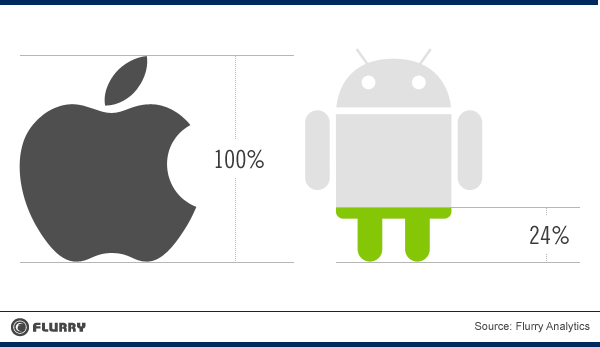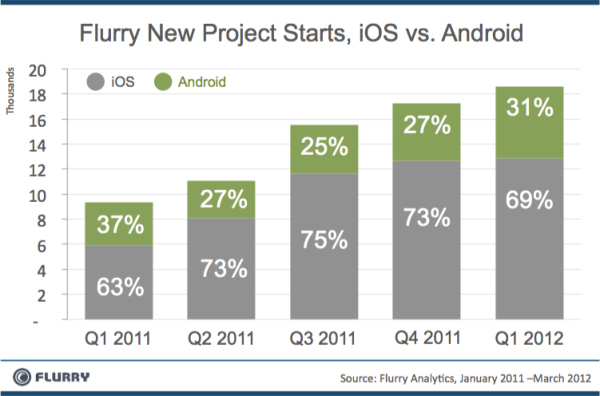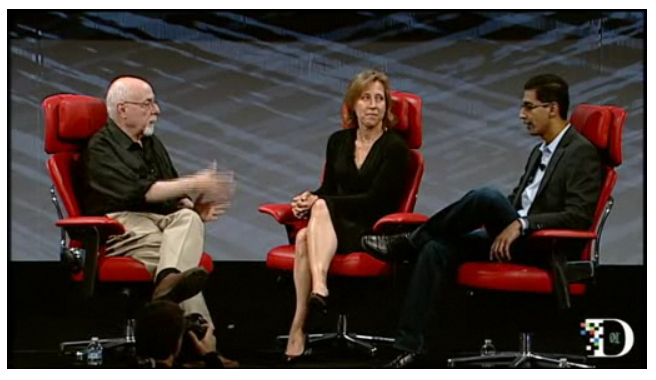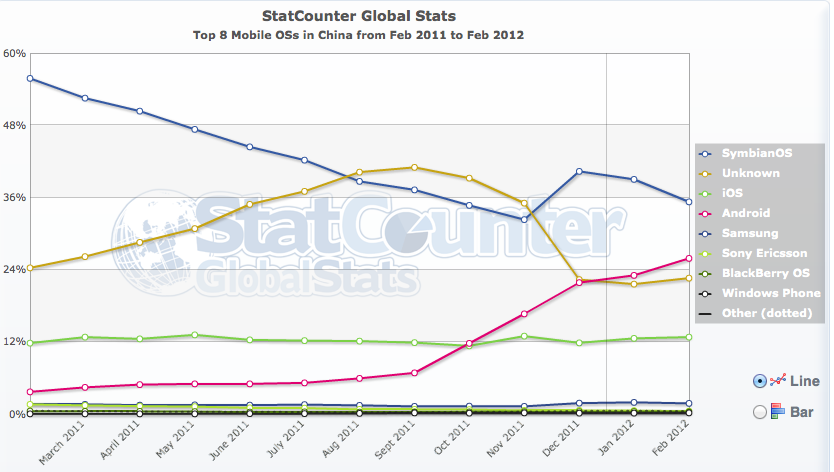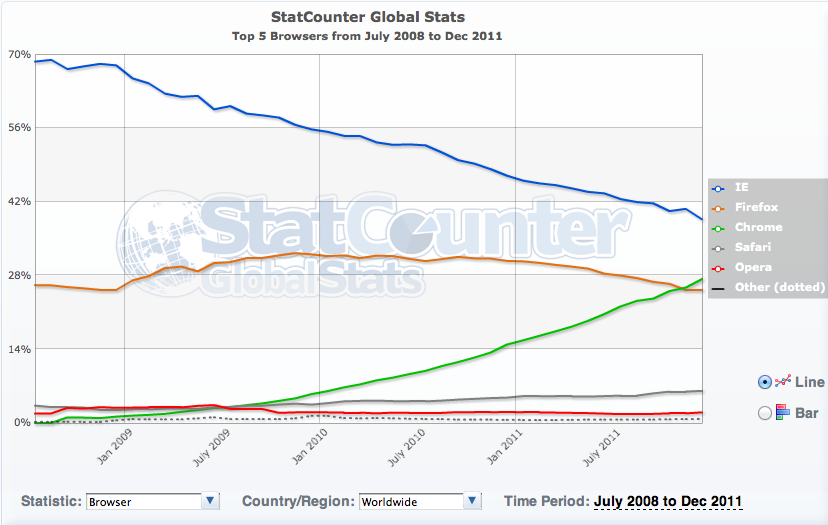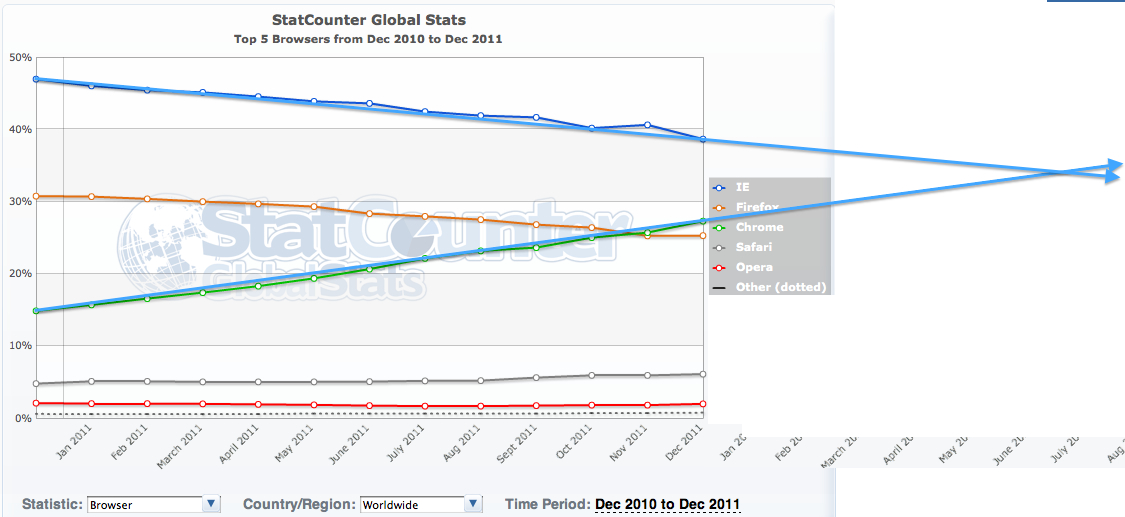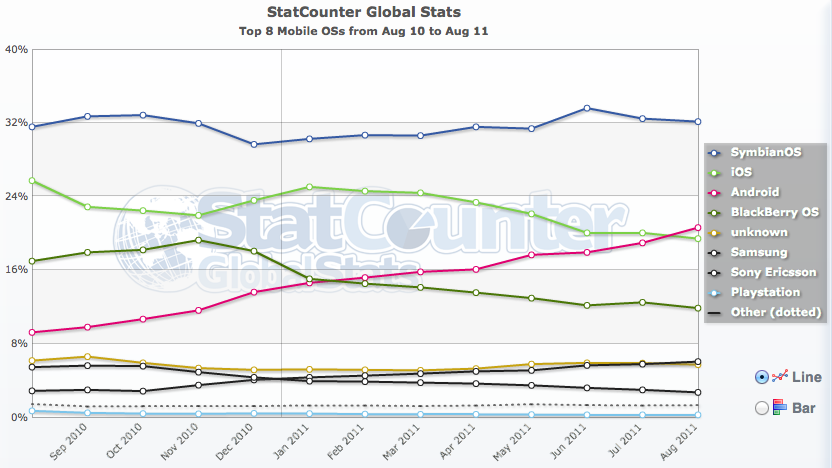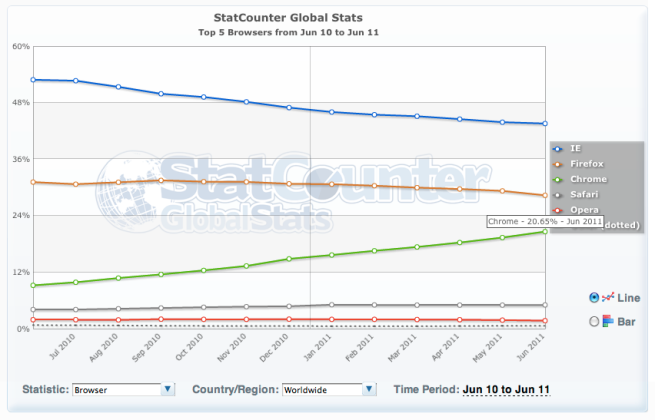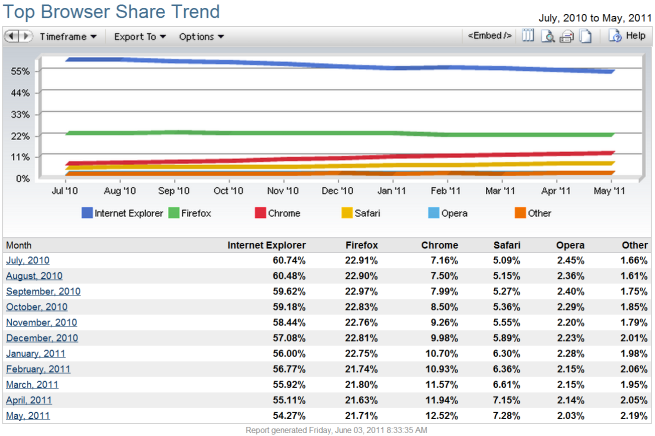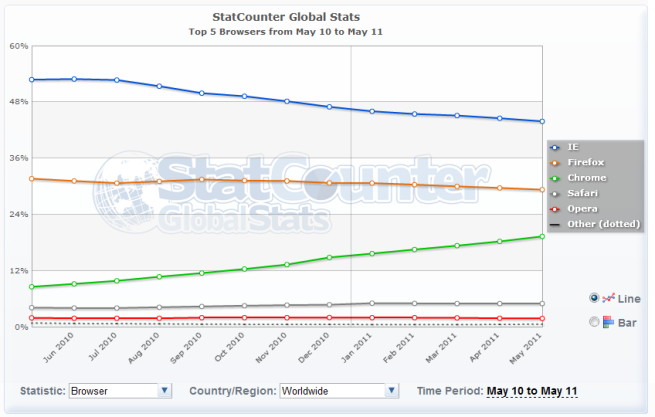
Report: For every 3 Android apps built, there are 7 for iOS
Analytics firm Flurry has dissected developer ratios for Apple and Google’s mobile platforms as their respective annual conferences are on the horizon, and research findings show the two companies boast a joint market cap of about $750 billion.
The study compared developer support for iOS versus Android by examining data collected from more than 70,000 companies across more than 185,000 mobile apps. The bar graph below illustrates developers’ loyalty to Apple: For every 10 apps that developers build, only three are for the Android operating system.
“While Google made some gains in Q1 2012, edging up to over 30% for the first time in a year, we believe this is largely due to seasonality, as Apple traditionally experiences a spike in developer support leading up to the holiday season. Apple’s business has more observable seasonality,” explained Flurry in a blog post.
Flurry further cited iOS as the more attractive platform to developers due to its stronghold on the tablet market share. The pie chart below represents a sample size exceeding 5 billion total user sessions. It reveals the Galaxy Tab and Amazon Kindle Fire sit at “very distant second and third places in terms of consumer usage.”
Another comparison on revenue generated by top apps for both Android and iOS uncovered the difference in revenue generated per active user is four times greater on iOS than Android. Flurry noted that for every $1 earned on iOS, a developer could expect to earn about 24-cents on Android.
Apple’s Worldwide Developer Conference is June 11 to June 15 in San Francisco, while Google’s I/O conference is June 27 to June 29 in the same California tech-hub city.
